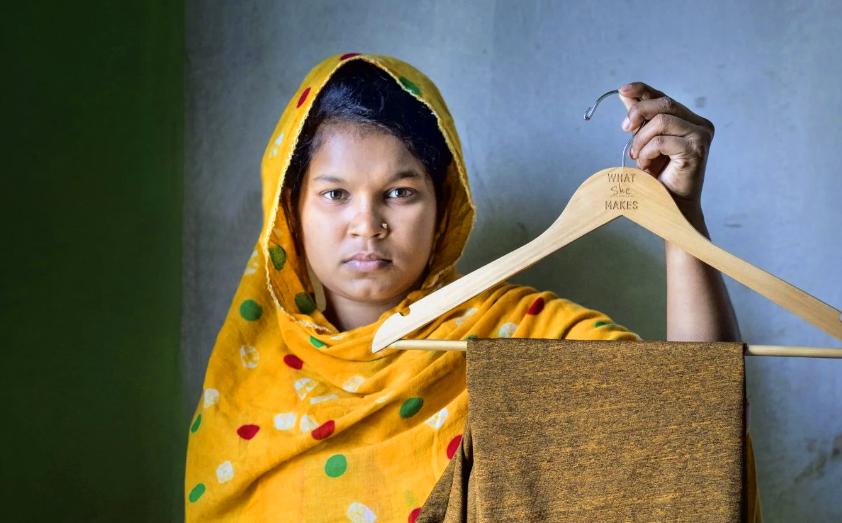New polling published today shows consumers do not trust Australian fashion brands making claims about the treatment of overseas garment workers in their supply chains, as the industry recorded a staggering $2 billion in expected profits and Bangladeshi workers campaign for better wages.
The polling was commissioned by poverty charity organisation Oxfam.
As Australians prepare to hit the shops to start Christmas shopping on Black Friday, Oxfam is calling out brands such as Uniqlo, Jeans West and Best & Less for what they say is these brands’ failure to take steps to break the cycle of poverty for the women making their clothes, with consumers backing in the calls.
Polling found more than 80 percent of Aussie clothes buyers agree that clothing brands should be more transparent about how much they pay and how they treat garment workers in their supply chain.
It also found:
- Seven in 10 (71 percent) Aussie clothes buyers think that clothing brands in Australia exaggerate or mislead consumers (intentionally or unintentionally) about how overseas garment workers in their supply chain are treated.
- Three in 4 (76 percent) Aussie clothes buyers say they would be willing to pay more for a clothing item if they knew that the money would go towards paying living wages for the garment workers.
- On average, Australian consumers think that 17 percent of the cost of a typical clothing item should go towards the garment worker who makes it as part of their wage. Previous research found that on average, only 4% goes towards the worker.
Oxfam has today released a ‘Christmas Wish List’ that identifies which brands are falling behind and how, against three key markers showing their commitment towards paying a living wage.
A living wage means enough money is earned in a standard work week to cover basic essentials for a family including nutritious food, housing, healthcare, clothing, transportation, energy, water, childcare, and education, as well as some discretionary money and provision for unexpected events.
One of the key actions Oxfam is urging from brands is to enhance transparency, emphasising that sharing up-to-date information about where clothes are made empowers consumers, workers, and unions to hold companies to account. Meanwhile, although they still have work to do in other areas, H&M and Kmart get a tick on transparency.
Oxfam also wants brands to include wages as an itemised part of price negotiations, which is the most effective way to address aggressive negotiations and an important step toward the payment of a living wage. Best & Less, Uniqlo and Jeans West have failed to take this step.
Lyn Morgain is Oxfam Australia Chief Executive. She said the polling shows consumers back Oxfam’s calls and take this issue seriously.
“This polling is evidence of what we have long known – that ethical considerations are increasingly a significant factor in consumers’ purchasing decisions. That’s why taking action now is not only in the interest of workers, but in the interest of these companies’ bottom lines,” said Ms Morgain.
“Garment workers are currently struggling to afford basic necessities like food, power and housing for themselves and families, which has been further exacerbated by the cost-of-living crisis. We stand in solidarity with the Bangladesh ready-made garment workers and trade unions’ recent demand for a minimum wage that meets their basic needs.
“Ultimately, brands hold the power and responsibility to ensure better lives for the workers who make their clothes – including by paying a living wage – yet they are still falling short.
Find out more about the Oxfam Christmas Wish list here.














